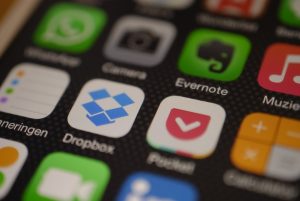
On Friday morning I was listening to a radio phone-in when the presenter said, “Please, no more calls about a Brexit deal…!” He then went on to say “We have no way of knowing what will or won’t be decided. There are a bunch of people locked in a room talking, and until they come out and tell us what has happened, there’s no point in us predicting anything.”
The day before, like I do every year, I bought an annual publication from The Economist magazine which they publish just before Christmas. “The World in 2021” tries to predict what we are going to be facing in the coming 12 months. I bought “The World in 2020” last November and the predictions in it are just way out — not a mention of COVID or lockdowns…!
Even with all their expertise in the Economist Intelligence Unit and their access to world experts, their ability to predict the future, just a few months ahead, was woefully inadequate.
In a couple of weeks from now, as we approach 2021, you will be able to buy magazines with your “Stars for the New Year” written by a famous astrologer. I remember a few years ago a national newspaper published the “Stars for the New Year” as usual. They discovered that they were identical to what they had printed exactly 12 months beforehand. Their resident TV astrologer said the predictions were the same “because the stars hadn’t moved much over the year”. Mmmm…that suggests he had little understanding of astronomy as well.
I used to provide consultancy to the Met Office down in Exeter. I was very excited when I first went to their fabulous building (it really is lovely) because they were going to show me their “supercomputer”. It is one of the biggest in the world and can complete 14,000 Trillion calculations per second. Oh, and they have two of these machines because one is a backup. Yet even with this £1bn device, predicting the weather is not entirely accurate. You may have seen TV weather presenters being asked “will we have a white Christmas” and they say “it’s too early to say just yet”. That’s because even with fantastic technology and the best meteorological brains on the planet, they are only 50–50 right with weather forecasting ten days ahead. They even have a one in ten chance of getting their predictions wrong — on the same day…!
So, why are we so fascinated with predicting the future? We want to know what the weather will be like. Millions of people believe in astrology (not me, by the way). Publishers produce almanacks and guides to the future. Economists forecast trends. Stockbrokers predict which way the markets will go. And phone-in callers reckon they can foretell what Government negotiators will achieve on Brexit.
The answer to this puzzle came up in a webinar I gave together with four other business speakers this week. One of the 508 guests on the call asked what the “number one thing was” we should do to improve our use of the Internet. My response was “make it routine — form some habits”. That’s because it is about the psychology of predictability.
Many people — indeed increasing numbers — are suffering from anxiety and depression associated with Internet usage. Plus productivity is static, even falling in some places. It’s all because our use of the Internet is haphazard. You check your emails now and then, or when an alert interrupts you. You check social media throughout the day. You search endlessly for “stuff”. In the “olden days,” you would have dealt with the mail once a day, at the same time every day. You would have engaged in social activity at the weekly business networking event. You would have had an appointment in your diary to visit the library for research.
All of those things mean that your brain relaxes. Your future is predictable because it is set to routine. You do not worry each day “did I clean my teeth this morning?” That’s because your brain knows you did it as it is an habitual routine.
When you do not have a routine, your brain gets flustered and anxious. It is about predictability and human survival. When everything is predictable, our brain relaxes as it knows our survival is not at threat. But when things are unpredictable because there is no routine, we are “on edge” as our brain is not sure about survivability.
The reason we like predictions, such as the weather, the economy, stock prices or Brexit deals, is because we do not have a “handle” on the future. So, our anxiety levels increase. Getting predictions about the future is all about your brain trying to reduce the stress surrounding you.
That means if you want to predict your future, the best thing you can do is set up some routines. That means making checking emails a daily habit, rather than it being ad-hoc. It means having a set time each day for social media. And it also means having particular periods in the day you use for research or writing and so on. The more of a routine you can set in your daily life, the more these things become habits, and the more you can predict your future. And with that comes a massive reduction in stress and anxiety.
So, yes, you can predict your future — but only if your use of the Internet is centred around routines and habits. If you don’t do that, your future becomes unpredictable and your brain gets anxious and stressed.
Business & Finance Articles on Business 2 Community
(39)







